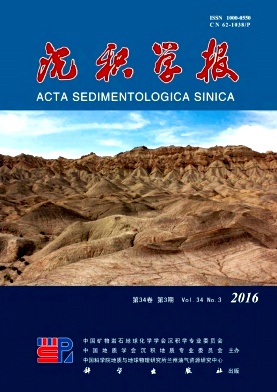Research Progress of the Enrichment Mechanism of Sedimentary Organics in Lacustrine Basin
doi: 10.14027/j.cnki.cjxb.2016.03.004
- Received Date: 2015-06-30
- Rev Recd Date: 2015-09-30
- Publish Date: 2016-06-10
-
Key words:
- lacustrine /
- sedimentary organics /
- organic productivity /
- enrichment mechanism /
- dilution effect
Abstract: The research of enrichment mechanism of organic matter has great significance in exploring high-quality hydrocarbon source rock and evaluating oil and gas potential in a basin, which becomes more and more important and urgent under the great influence of the exploration and development of unconventional hydrocarbon resources such as shale gas, tight gas and oil shale. However, the overall research degree of organic matter enrichment mechanism is not high, and the research of lacustrine organic matter is relatively lower. With terrestrial basin as the object of the research, based on a detailed investigation of organic matter enrichment mechanism, this paper summarizes systematically the main controls on organic matter enrichment of terrestrial basin from the following aspects including organics production, organics decomposition and preservation, dilution effect of sedimentation on organics, furthermore, the differences of organic matter formation between marine and terrestrial basin are compared and discussed. The research indicates that lacustrine organic production is affected by area illumination rate, nutrient supply, basin topography, climate, aqueous media conditions, seasonal blooming algae, and autotrophic bacteria, etc.; lacustrine organic decomposition and preservation is subject to water stratification, bacterial biomass, inorganic mineral, aqueous medium condition, clay minerals, sedimentation rate, and so on; lacustrine dilution effect of sedimentation on organics is influenced by sedimentation rate. Finally, the paper makes a conclusion that total organic matter content of a terrestrial basin is actually a mutual interaction result of “organics production-organics decomposition-organics dilution”. At the end of this paper, two research areas worthy of paying more attention and in-depth study of this area in the future are put forward, which include, in what condition can autotrophic bacterium yield high productivity, and the impacts of different aqueous medium conditions on organics decomposition and preservation.
| Citation: | ZHANG HuiFang, WU XinSong, WANG Bin, DUAN YunJiang, QU Yang, CHEN DeFei. Research Progress of the Enrichment Mechanism of Sedimentary Organics in Lacustrine Basin[J]. Acta Sedimentologica Sinica, 2016, 34(3): 463-477. doi: 10.14027/j.cnki.cjxb.2016.03.004 |






 DownLoad:
DownLoad: